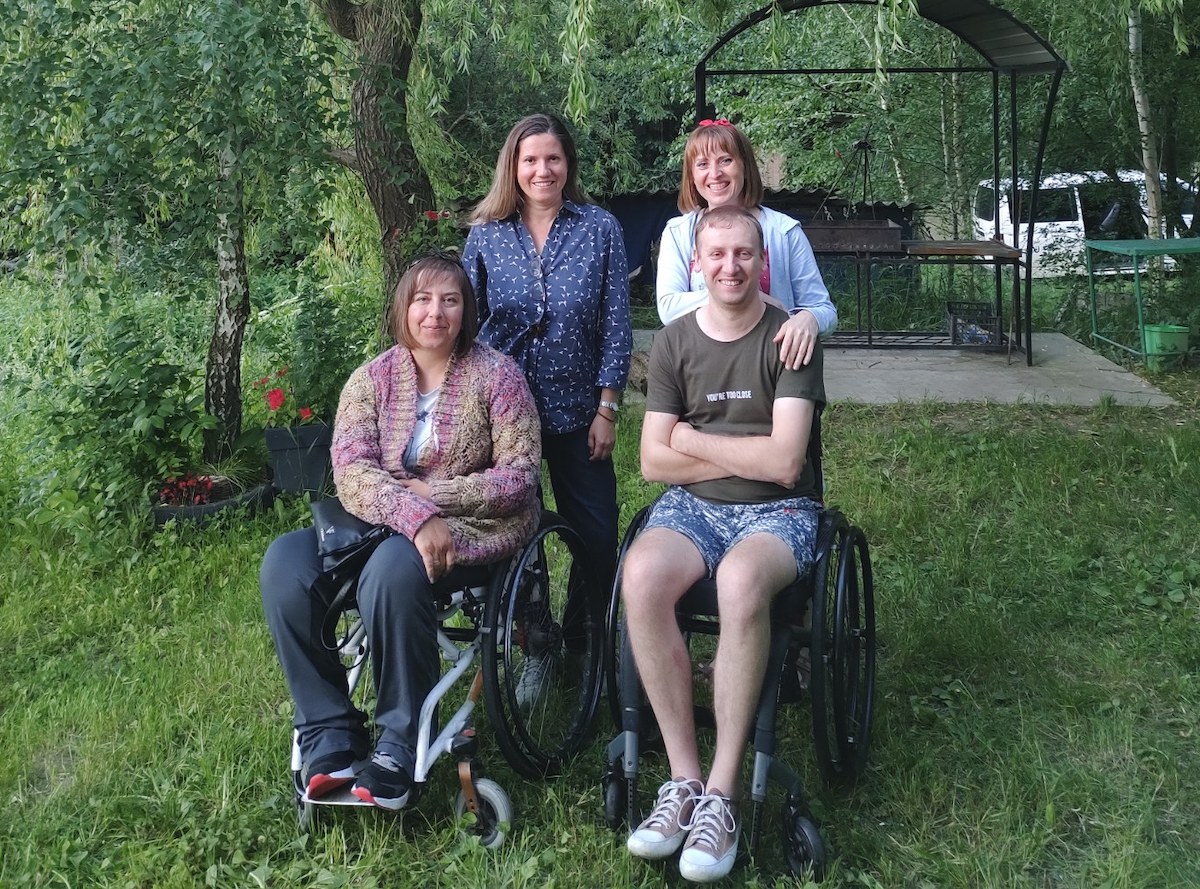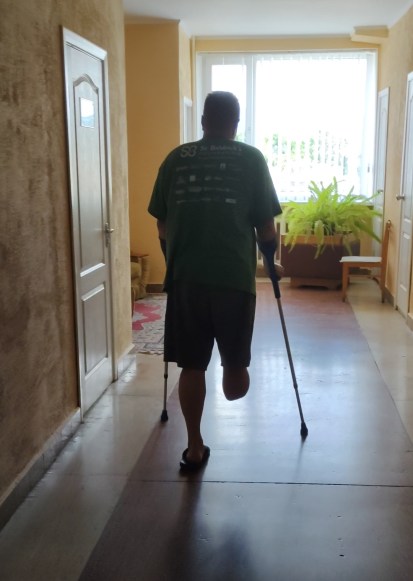Santa Barbara Occupational Therapist Volunteers Her Services to Ukrainians
Cottage Hospital’s Alina Tupchyk Visits Ukraine to Assess Needs of People with Disabilities
By Tyler Hayden | August 18, 2022

Read all of the stories in our cover package, “Three Stories of Getting to Ukraine,” here.
For more than a decade now, Alina Tupchyk, an occupational therapist at Cottage Hospital, has made annual pilgrimages to a retreat center in northwest Ukraine that serves people with disabilities. Set among old trees and wide fields, it’s a respite of free lodging, food, and medical care for those who need the extra support. “It’s a beautiful little place,” she said.
Tupchyk always arrives with boxes of supplies — braces, prosthetics, and other medical equipment — and readily volunteers herself to the country where she was born and spent the early years of her childhood. This June, she paid yet another visit. “This was a very different trip,” she said.

While she utilized the retreat center as a home base, Tupchyk spent most of her three weeks in Ukraine embarked on a listening tour. “The goal was to assess the needs of people with disabilities,” she explained. “The needs that existed prior to the war and of those who have been newly injured.” Tupchyk visited 17 cities and towns and nine hospitals, speaking with doctors, nurses, NGO directors, local occupational therapists, and others. In the early days of the war, patients were concentrated in the eastern part of the country, where fighting was the heaviest. “Now they’re being shipped all over the country,” said Tupchyk.
A common thread quickly became clear. “They’re overwhelmed,” Tupchyk said of the constant arrival of patients with missing limbs and other disabling injuries. “These places are bursting at the seams.” Hospitals and clinics simply don’t have enough beds to meet demand, and key pieces of equipment, such as wound vacuums, are in critically short supply. Tupchyk is accustomed to witnessing trauma in her everyday work life, but even she was taken aback by what she saw. “So many people came in with wounds that look like a bear took a couple of bites out of them,” she said.
Though often lacking in tools and sometimes even behind on modern medical knowledge, the Ukrainians were always “hungry for education and mentorship,” Tupchyk found. “It was very eye-opening.” Tupchyk was happy to oblige by teaching providers about proper wound care and how to wrap limbs with ACE bandages to accommodate prosthetics, among other techniques. She also discovered a big need for translation services, an issue she is working with a nonprofit to address. Tupchyk is now collaborating with a U.S. prosthetist as well.
Thinking longer term, Tupchyk said she would love for her Cottage colleagues to offer their own expertise on different medical topics. Many have already expressed interest in doing so. She’s hoping to set up conferences and seminars, which her contacts in Ukraine are excited to facilitate. “They’re eager to be more effective,” she said. Tupchyk made it a point to thank another Santa Barbara organization — Direct Relief International— for helping her buy a wheelchair-accessible van and shipping it overseas.
As she traveled throughout the country, Tupchyk saw no shortage of urban destruction. “It felt unreal,” she said. “Like a mirage.” But it was visiting her in-laws’ abandoned home in Kyiv — her husband is also Ukrainian-American — that really cut her to the core. “That house used to be so vibrant, always full of people,” she said. “Now it’s utterly lifeless. I broke down.”
As the war drags on, Tupchyk observed, the Ukrainians have had no choice but to adapt to their new reality of “constant air raid sirens, limited supplies, and relatives dying left and right.” They’re a resilient and resourceful people and rely on one another to survive, she said. Tupchyk remembered a woman she met who lived in an apartment with her son, who is deaf, blind, and bedridden. “She lives for her son,” Tupchyk said. “He’s the light of her life.” While most of their neighbors began to flee from the oncoming fighting, one man on her floor remained behind to help care for them.
Also at the center, workers have constructed a swing that can accommodate wheelchairs based only on seeing a photograph of the contraption. Someday, Tupchyk said, she would like to see the facility expanded and modernized into a state of the art rehabilitation center. While her trips typically take place in the summer, Tupchyk hopes to return sooner this time, perhaps before the end of the year. “They’re incredibly grateful,” she said.




You must be logged in to post a comment.